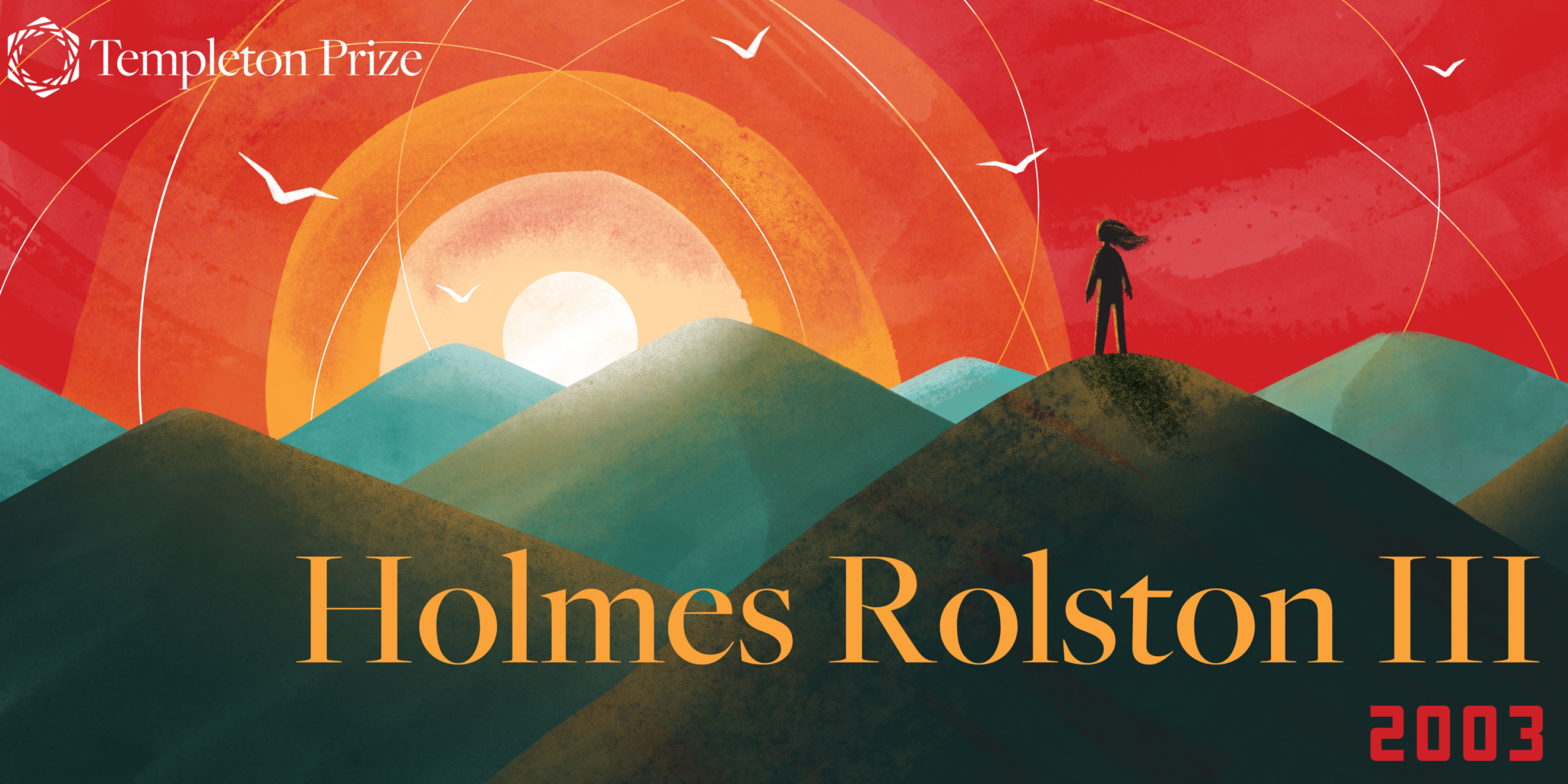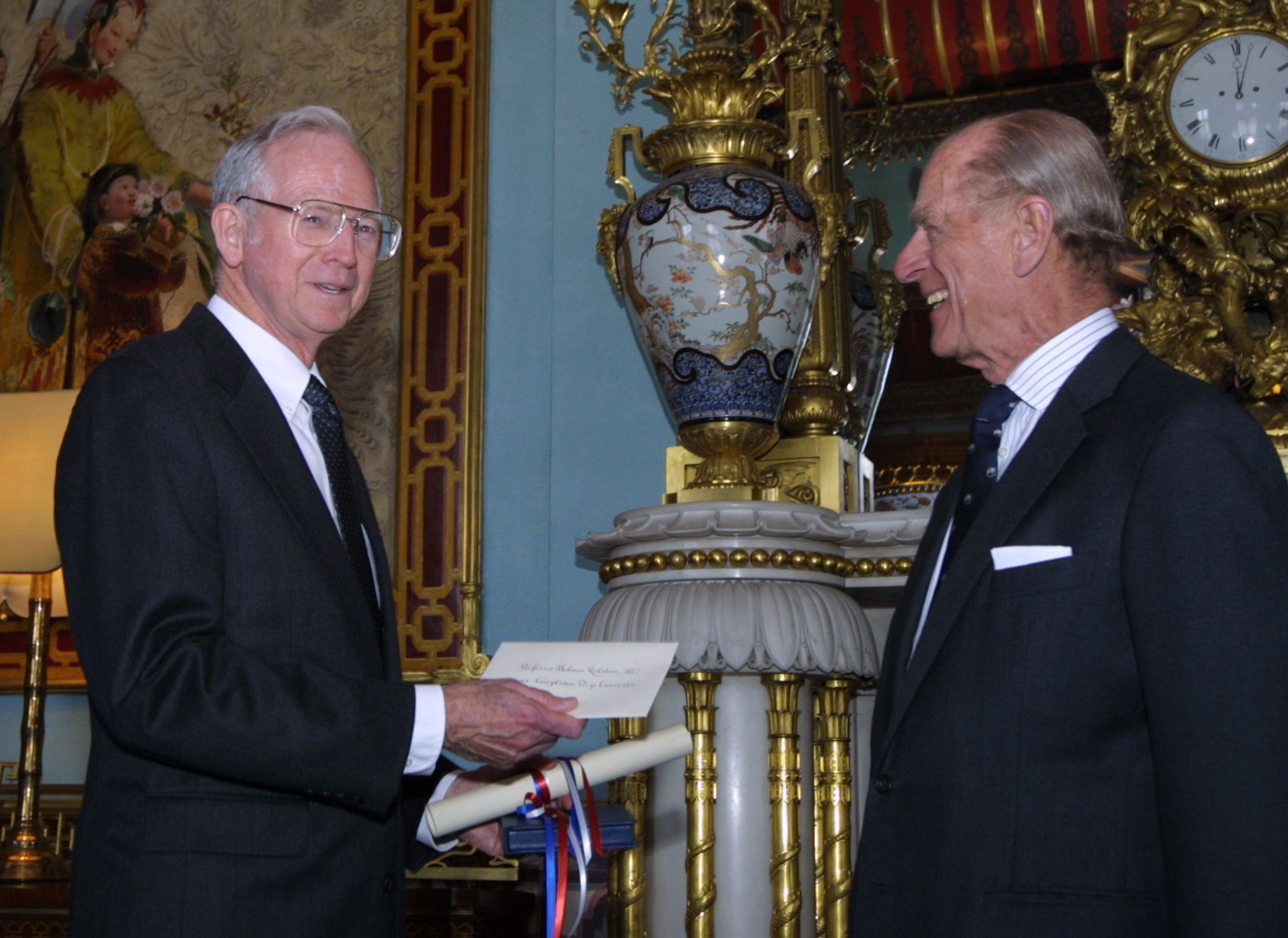In 1973, the first Templeton Prize was given to Mother Teresa. In 2023, we celebrate the 50th anniversary of this award. Over the next 52 weeks, we will highlight each of our laureates and reflect on their impact on the world. From humanitarians and saints to philosophers, theoretical physicists, and one king, the Templeton Prize has honored extraordinary people. Together, they have pushed the boundaries of our understanding of the deepest questions of the universe and humankind’s place and purpose within it, making this (we humbly think) the world’s most interesting prize.
Holmes Rolston III is a preeminent figure in the fields of environmental ethics and philosophy. Renowned for his groundbreaking work in bridging the gap between science and ethics, Rolston has made lasting contributions that challenge traditional ways of thinking about humanity’s relationship with the natural world.
Rolston was born on November 19, 1932 in Virginia. Living in a home rich in Christian teaching and writing and surrounded by the natural wonder of the Shenandoah Valley, Rolston’s childhood laid the foundation for a life that would challenge the longstanding orthodoxy on the relationship of religion and nature and open new frontiers for understanding values in creation.
Rolston was educated at Davidson College with a degree in physics and mathematics. He then attended Union Presbyterian Seminary in Virginia and was ordained to the ministry of the Presbyterian Church. He also studied philosophy at the University of Pittsburgh. In 1958, he received a Ph.D. at the University of Edinburgh, where his advisor was 1978 Templeton Prize winner Thomas F. Torrance.
His initial efforts to introduce environmental ethics were rejected by mainstream philosophical journals, before his 1975 article “Is There an Ecological Ethic?” was accepted by Ethics. This was the first article in a major philosophical journal that challenged the then-widespread idea that nature was value-free and that all values stem from a human perspective.
In his seminal book Environmental Ethics: Duties to and Values in the Natural World (1988), Rolston introduced the concept of valuing nature for its own inherent worth rather than merely for its utility to humans. This revolutionary perspective laid the groundwork for a new way of approaching environmental issues—one that recognizes the intrinsic value of all living beings and ecosystems.
Rolston’s insights into the relationship between science and ethics have fostered a deeper understanding of our moral responsibilities toward the environment. He has explored complex topics such as biodiversity, evolution, and the anthropocentric worldview that often drives environmental degradation. His work encourages interdisciplinary dialogue and challenges the conventional boundaries that often separate scientific inquiry from ethical considerations.
-

Holmes Rolston III accepting award from HRH Prince Philip, Duke of Edinburgh
In 2003, Rolston was awarded the Templeton Prize for his research, writing, and lecturing on the religious imperative to respect nature, which in turn established the field of environmental ethics. Prince Philip, The Duke of Edinburgh, awarded the Prize to Rolston in a private ceremony at Buckingham Palace on May 7, 2003.
“I have spent my life in a lover’s quarrel, not with my wife of four decades, but with the two disciplines I love: science and religion. … The trouble is making peace between the two; but equally I have had to quarrel with both about values intrinsic to nature. Science thought nature to be value-free. Monotheism thought nature fallen owing to human sin. They agreed that humans were the center of value on Earth. I had to fight both theology and science to love nature.”
– Holmes Rolston III
“Humans do belong on the planet; we are Earth’s keepers, the salt of the earth. Nature is intrinsically valuable, but nature is not a moral sphere. Scientists and theologians are right that there is no conscience in wild nature, no compassion, charity, justice, honesty. One does not learn the Ten Commandments in the wilderness. Humans need ethics to live well on Earth.”
– Holmes Rolston III

